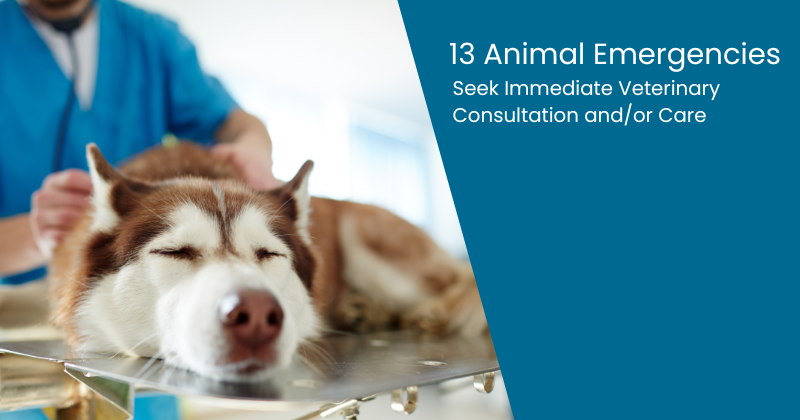
The bottom line is that ANY concern about your pet’s health warrants, at a minimum, a call to your veterinarian.
If you have an animal emergency, contact your veterinarian or emergency veterinary clinic immediately. If you suspect or know that your pet has eaten or been exposed to a toxic substance or product, contact your veterinarian, emergency veterinary clinic, or the ASPCA Animal Poison Control Center [888-426-4435*] immediately. * a fee may apply
In addition to these seven things, you should also be prepared with methods of payment for your pet’s emergency care. Emergency care is often more expensive than routine care due to the intensity of diagnostics, monitoring and treatment required, and it is your responsibility as a pet owner to pay for that care. Many clinics are unable to bill you for the services, or may require a deposit or payment in full at the time of service. Delaying emergency care to avoid emergency fees could put your pet’s life at risk. Planning ahead for financial coverage of emergencies – perhaps by having a separate account or credit card for emergency use only, or pet insurance – can save you a lot of stress when they do happen.
The reservations are made, the bags are packed, and you’re ready for your trip. If you’re not taking your animal(s) with you, who’s in charge of healthcare decisions while you’re away? Cell phones and computers have made it much easier to stay in touch and be contacted, but what if you can’t be reached in case of an emergency? Regardless of whether you’re leaving your animal in the care of family or friends, a veterinary hospital, boarding kennel or stable, you should authorize someone you trust to act on your behalf in case of an emergency if you can’t be reached. Make sure that person is aware of your wishes regarding emergency treatment; this includes the potentially uncomfortable topic of financial limits, if there are any. Provide that person with all possible methods of contacting you in case of an emergency, including contact information for your traveling companions as appropriate, as well as an assurance of your trust that they can make decisions if you cannot be reached.
Questions to consider:
Actions to provide for your pet’s care while you’re away:
Closed from 1-2pm daily for lunch
*Saturday Walk-ins available on a first-come, first-served basis. Wait times vary, and you may be turned away if we reach capacity.


